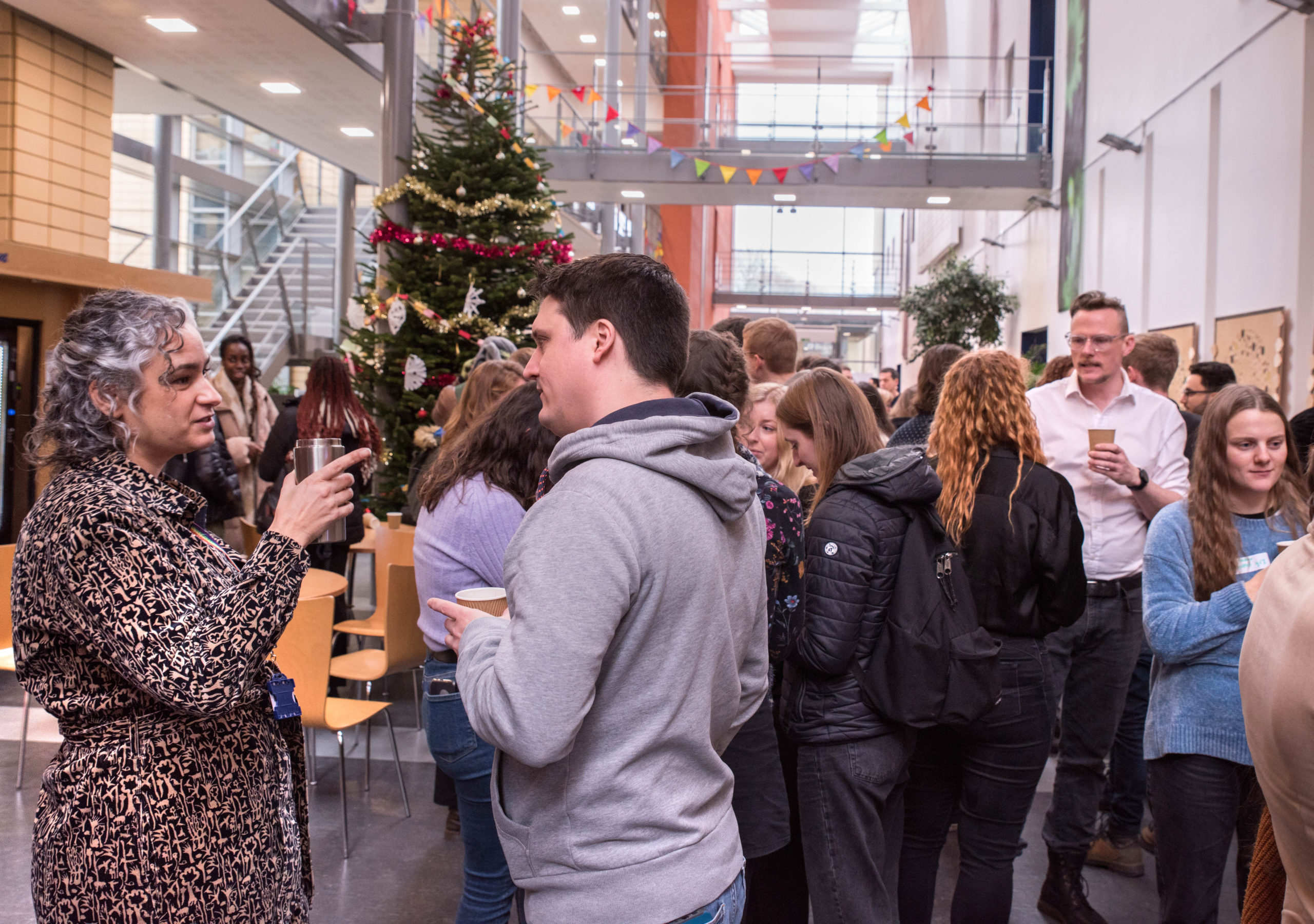The Spring Training Day will bring together the whole DTP cohort on 29th March at the University of York.
Years 1-2 will have analytics training run by Emma Rand (York) and Mark Dunning (Sheffield). More details below.
Year 3 workshops: public speaking, publishing your research, and job hunting and preparing for job interviews.
Year 4 workshops: public speaking, thesis writing and viva preparation, job hunting and preparing for job interviews.
There will also be time for social activities and cohort building. The full schedule will be circulated nearer the time.
We look forward to seeing you there!
Analytics 1 (1st years): Introduction to reproducible analyses in R
Course content
An increase in the complexity and scale of biological data means biologists are increasingly required to develop the data skills needed to design reproducible workflows for the simulation, collection, organisation, processing, analysis and presentation of data. Developing such data skills requires at least some coding, also known as scripting. This makes your work (everything you do with your raw data) explicitly described, totally transparent and completely reproducible. However, learning to code can be a daunting prospect for many biologists! That’s where an Introduction to reproducible analyses in R comes in!
R is a free and open source language especially well-suited to data analysis and visualisation and has a relatively inclusive and newbie-friendly community. R caters to users who do not see themselves as programmers, but then allows them to slide gradually into programming.
Who is this for?
This is mandatory training for first years i.e. students who started in 2022. This includes core DTP students plus iCASE and White Rose Network students.
Prerequisites
I recognise that people will enter this training with a diverse range of previous experience in R. This is a challenge to manage but the aim is for everyone to get something out of the training no matter where they start. There will be tutor-led sessions for those without previous experience and materials for those with experience to work though with the help of floating tutors. Pre-course instructions for participants are given below.
Computers will be provided. You can bring your own laptop to the workshop if you wish but it will need a working wi-fi connection and you will have to let the tutor know in advance so a temporary York password can be created for you.
Learning outcomes
After these modules the successful learner will be able to:
- Find their way around the RStudio windows
- Create and plot data using the base package and ggplot
- Explain the rationale for scripting analysis
- Use the help pages
- Know how to make additional packages available in an R session
- Understand what is meant by the working directory, absolute and relative paths and be able to apply these concepts to data import
- Summarise data in a single group or in multiple groups
- Recognise tidy data format and carry out some typical data tidying tasks
- Develop highly organised analyses including well-commented scripts that can be understood by future you and others
- Use R Markdown to produce reproducible analyses, figures and reports
Analytics 2 (2nd years): Introduction to the command-line for Bioinformatics
Course content
This course offers an introduction to working with Linux. We will describe the Linux environment so that participants can start to utilize command-line tools and feel comfortable using a text-based way of interacting with a computer. We give example of processing data arising from Next-Generation Sequencing experiments, in particular an RNA-seq experiment.
Who is this for?
This is mandatory training for second years i.e. students who started in 2021, and follows on from the Analytics R1 undertaken in the first year. This is for all DTP students, including core DTP students plus iCASE and White Rose Network students.
Prerequisites
No prior programming experience is required. Computers will be provided. You can bring your own laptop to the workshop if you wish but it will need a working wi-fi connection and you will have to let the tutor know in advance so a temporary York password can be created for you.
Learning outcomes
After this course you should be able to:
- Connect to a Unix / Linux system
- Navigate around a file system by issuing commands; rather than using a Desktop environment
- Move and copy files and directories within the Linux system
- Work with text files
- Run programs from the command-line
- Run quality assessment tools on data derived from High-throughput sequencing experiments
- Align sequencing reads against a reference genome
For photos of the event see the Gallery.

